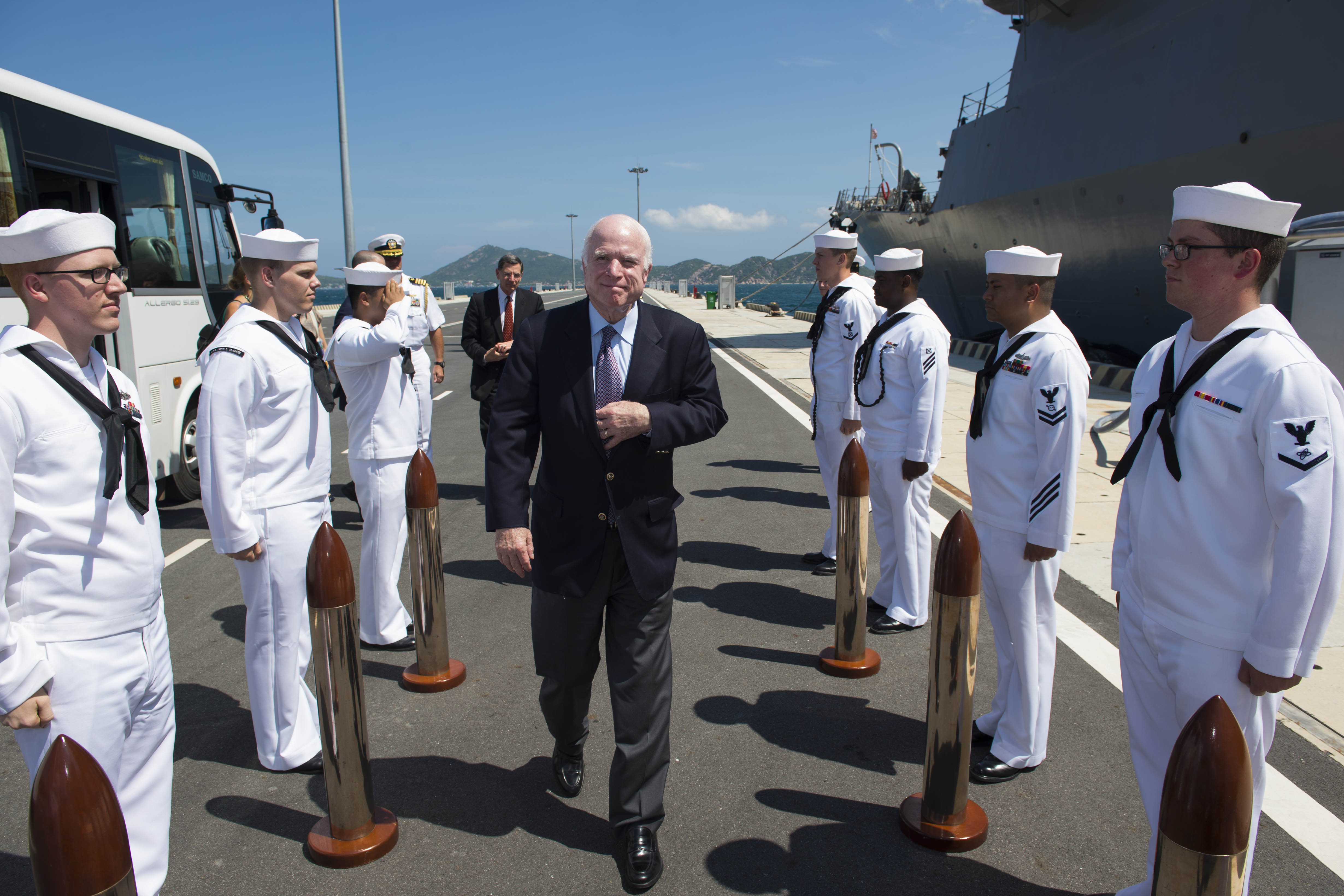Views expressed in opinion columns are the author’s own.
John McCain’s funeral last weekend was the big-ticket event in Washington. The New Yorker, the official journal of bleeding-heart liberals and probably your dentist, christened it “The Biggest Resistance Meeting Yet”, bringing together everyone from Paul Ryan to Barack Obama in one festive celebration of the life of America’s most beloved maverick. Even University of Maryland President Wallace Loh got in on the action with a tweet about how we could honor McCain’s legacy.
Now, it is true that McCain was a war hero. His choice to stay behind when offered an early exit from torture in Vietnam is the kind of egalitarian virtue that represents American principles at their best. The trouble is that in the mad rush to eulogize McCain and turn him into an icon of #resistance to President Trump, his record was largely left unexamined.
I don’t mean the senator’s positions on Social Security chained-cost-of-living-adjustments or agriculture spending or something else inane that’s the signature issue of lanyard-wearing policy analysts and no one else. Those things are important, but they do not warrant being brought up in death. Nor do I even mean McCain’s general support for Trump’s agenda (according to FiveThirtyEight, McCain voted in line with Trump’s position 83 percent of the time).
No, what’s troubling is the inability of anyone in the media (let alone anyone at McCain’s funeral) to address the senator’s overwhelming support for war. You can understand why: Most of us would like to believe that someone who had suffered through the kind of treatment McCain did would come away with at least a serious aversion to inflicting that kind of cruelty on anyone else. Yet time and again, McCain got on board with America’s ill-fated imperialist adventures.
McCain supported the war in Iraq, of course, and indeed was one of its major defenders from the beginning. Worse, he was a leading proponent of the infamous “surge” in which the US poured even more troops into the region on the theory that an overwhelming show of strength would be just enough to finally win. This wasn’t enough for McCain; he went on to advocate doing the same thing in Afghanistan. None of this should have come as a surprise by that point — after all, McCain originally came to prominence when he broke with much of the Republican Party to support Bill Clinton’s bombing of Kosovo.
Anyone who remembers the 2008 presidential election will recall the clips of McCain singing “bomb, bomb, bomb Iran” to the tune of the Beach Boys’ “Barbara Ann.” As recently as last year, McCain was implying that we should go to war with Russia. He also voted to continue selling weapons to Saudi Arabia for its (U.S.-backed) war on Yemen—a war in which, just last month, the Saudi coalition blew up a school bus, killing 40 children.
The human suffering that results whenever the U.S.decides to go on another democracy-building funtime expedition is always enormous. The cost is immense: in American lives, in the lives of the people we believe ourselves to be defending and even just in the amount of money that’s spent. The ruling class knows all this, of course. They know that McCain supported relentless war and they know that relentless war brings an incredibly awful cost.
Close to 60 years ago, a different Republican war hero—one who actually got elected president—warned us against letting what he called “the military-industrial complex” take control of our society and government. Dwight Eisenhower worried that the permanent weapons industry demanded by the 20th century would transform the United States into a brutal society obsessed with war and governed undemocratically by a rich academic-managerial class.
Sen. McCain helped create that society. Why are we thanking him for it?
John-Paul Teti is a senior computer science major. He can be reached at jp@jpteti.com.



